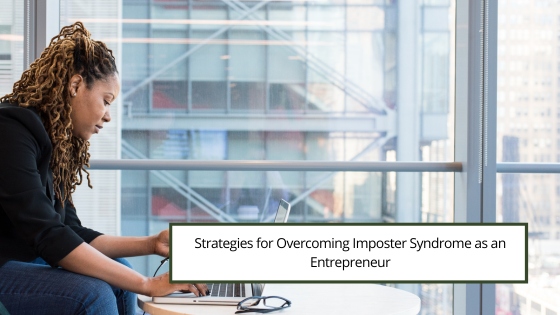Imposter syndrome is a pervasive psychological phenomenon that affects many entrepreneurs. It’s that nagging feeling of self-doubt and inadequacy despite evidence of your competence and success. While it’s normal to experience self-doubt occasionally, imposter syndrome can be particularly damaging for entrepreneurs striving to build and grow their businesses. However, there are strategies you can employ to overcome imposter syndrome and thrive in your entrepreneurial journey.
- Acknowledge and Accept: The first step in overcoming imposter syndrome is recognizing that you’re experiencing it. Accept that these feelings are common among entrepreneurs and professionals alike. Understand that it doesn’t reflect your actual capabilities or worth. This self-awareness can be empowering and the first step toward managing imposter syndrome.
- Positive Self-Talk: Replace negative self-talk with positive affirmations. Challenge the inner critic by acknowledging your accomplishments and skills. Remind yourself of your achievements, no matter how small they may seem. This positive reinforcement can help counteract imposter syndrome’s harmful effects.
- Set Realistic Goals: Often, imposter syndrome thrives when you set unrealistic expectations for yourself. Break down your entrepreneurial journey into manageable, achievable goals. Celebrate your successes, no matter how minor they may appear. This incremental progress can boost your confidence and reduce feelings of inadequacy.
- Seek Support: Talk to friends, family members, or fellow entrepreneurs about your feelings. Sharing your experiences can help you realize you’re not alone in this struggle. Sometimes, just talking about imposter syndrome can alleviate its grip on your psyche.
- Mentorship and Networking: Connect with mentors or join entrepreneurial networks and communities. Interacting with others who have faced similar challenges can provide valuable insights and perspectives. Mentorship relationships can also help you gain confidence and develop new skills.
- Continuous Learning: Embrace a growth mindset. Understand that entrepreneurship is a journey of learning and development. The more you invest in acquiring new skills and knowledge, the more confident you’ll become in your abilities. Attend workshops, take courses, and read books relevant to your business.
- Record Your Achievements: Keep a journal of your accomplishments and positive feedback you receive from clients, customers, or peers. Reviewing this documentation during self-doubt can remind you of your competence and the value you bring to your business.
- Practice Self-Compassion: Allow yourself the same kindness and understanding you would offer a friend. Entrepreneurship is challenging, and it’s okay to make mistakes. Learn from them and use setbacks as opportunities for growth rather than sources of self-criticism.
- Visualize Success: Create a vision board or practice visualization exercises. Imagine yourself achieving your goals and running a successful business. Visualization can help build self-confidence and reduce the fear of being exposed as an imposter.
- Professional Help: If imposter syndrome severely affects your mental health and hinders your entrepreneurial journey, consider seeking professional help. A therapist or counselor can give strategies to address these feelings and develop coping mechanisms.
- Celebrate Failures: Instead of fearing failure, embrace it as a natural part of entrepreneurship. If you don’t give up, failure is usually a stepping stone to success. When you view it as a learning opportunity, it becomes less of a threat to your self-esteem.
- Focus on Impact: Shift your perspective from self-doubt to a focus on the impact you have on others. Think about how your product or service benefits your customers or the community. When you realize the value you bring to others, it can be a powerful motivator.
- Regularly Review Progress: Periodically review your entrepreneurial journey. Reflect on how far you’ve come, the challenges you’ve overcome, and the skills you’ve acquired. This retrospective analysis can help you appreciate your growth and development.
Overcoming imposter syndrome as an entrepreneur is an ongoing process. It’s essential to recognize that everyone experiences self-doubt sometimes, but it shouldn’t hold you back from pursuing your business dreams. Remember, you have the skills, knowledge, and determination to succeed in your entrepreneurial endeavors.

